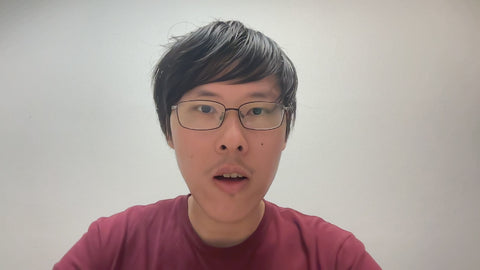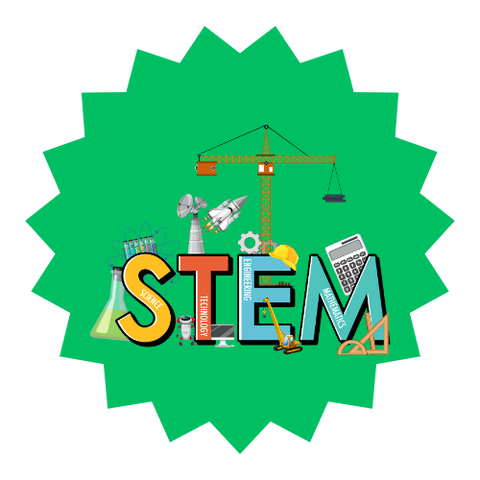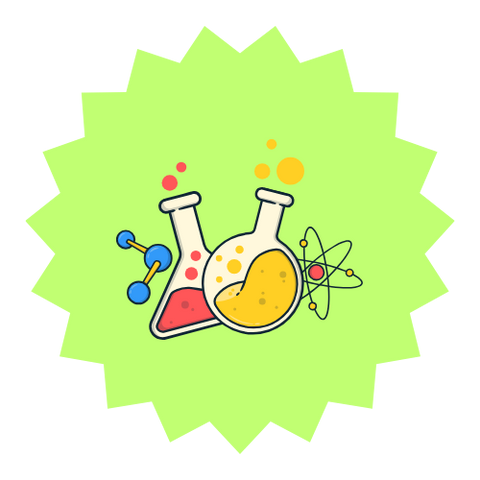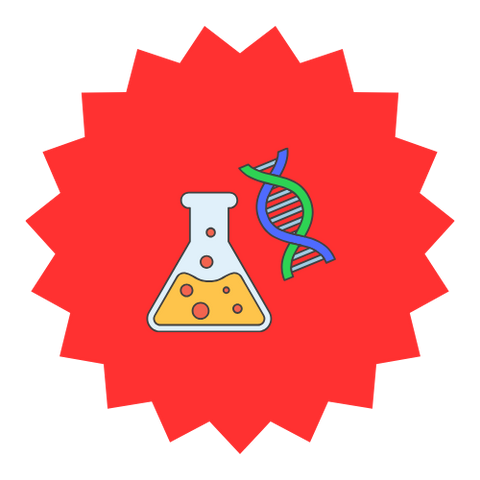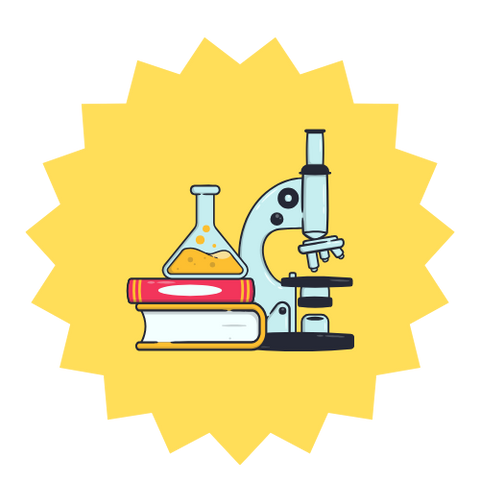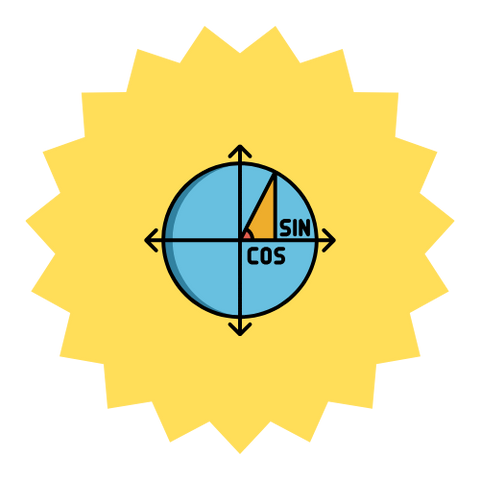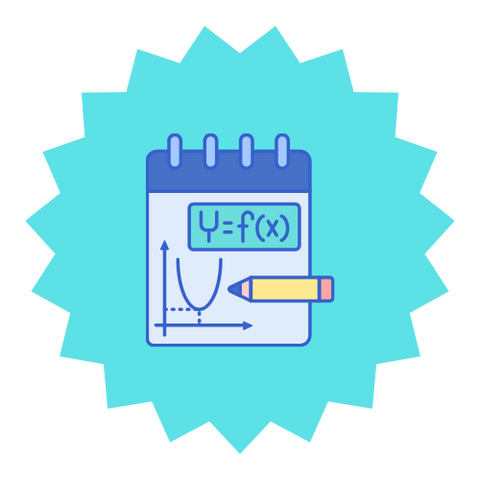Hanyuan
Hi there! I’m Hanyuan (Eric) Zhang, and I hold a Ph.D. in Chemistry from Texas A&M University. Over the past five years, I’ve taught and tutored both general and organic chemistry at the high school and college levels. My background spans biochemistry, protein science, and computational chemistry, and I pride myself on breaking down complex ideas into clear, step-by-step explanations. I’ve guided students through reaction mechanisms, atomic structure, and lab techniques, both in-person and online via Canvas and Blackboard. I’m patient, supportive, and committed to making chemistry approachable – and even enjoyable! Fun fact: I brew my own small-batch craft beer, blending science with flavor exploration.
Monday-Friday 8pm-12am CST Saturday-Sunday 9pm-1am CST CST
Educational Approach
My educational approach centers on clarity and deep understanding. I focus on helping students truly understand the concepts rather than just memorizing facts. I believe that chemistry should make sense, so I break down complex topics into simpler steps, using clear language and helpful analogies. For example, I might relate a chemical reaction to an everyday process or use a visual diagram to show molecules interacting. Guided practice is a core part of my teaching style: after explaining a concept, I work through example problems with the student, providing hints and feedback to reinforce learning. In short, I aim to make chemistry clear, relevant, and engaging. Some key elements of my approach include:
Clarity and Conceptual Focus: Emphasizing understanding over memorization, making sure each step is clear before moving on.
Real-World Examples and Visuals: Using everyday analogies, diagrams, and molecular models to make abstract ideas concrete.
Guided Practice and Labs: Following explanations with hands-on or virtual experiments and practice problems so students can actively apply new concepts.
Adaptable Pacing: Adjusting my explanations and the lesson plan to fit each student’s background and learning speed.
Working with Students
When I work with students, whether in person or online, I start by understanding their goals, background, and current level of understanding. I am very patient and supportive, and I encourage questions at every step. Whether one-on-one or in a small group, I use a variety of approaches depending on the student’s needs:
Individualized Assessment: I begin by gauging a student’s background and misconceptions so I know where to start.
Interactive Explanations: I use simple analogies, everyday examples, and visual tools (like drawings or interactive simulations) to explain new concepts.
Guided Practice: I walk through problems and experiments with students, letting them solve parts of the problem while I provide hints and feedback.
Hands-On Learning: Whenever possible, I incorporate lab activities or demonstrations (even virtual labs) to make chemistry tangible and exciting.
Adaptable Learning Strategies: I tailor lessons to different learning styles (visual, auditory, kinesthetic) and adjust my pace to ensure comprehension.
Use of Technology: In online sessions I leverage platforms like Canvas or Blackboard to share resources and keep students organized.
Throughout each session, I stay patient and encouraging. I celebrate small wins to build confidence and always make sure the student is following before moving on. By staying flexible and attentive, I create a supportive environment where students feel comfortable asking questions and actively engaging with the material.
Chemistry PhD from Texas A&M University, BS Chemistry, Biochemistry, Applied Math University of Wisconsin-Madison Robert A. Welch Foundation graduate student fellowship 2020
I’ve been teaching and tutoring chemistry for over seven years. During my undergraduate studies at the University of Wisconsin–Madison, I started by leading peer study groups in general and organic chemistry, helping high school classmates and college peers strengthen their understanding of reaction mechanisms and lab techniques. After earning my B.S., I served as a Chemistry Tutor at UW–Madison (2016–2018), guiding small groups through coursework and boosting exam performance. In graduate school at Texas A&M University (2019–2024), I spent five years as a Graduate Teaching Assistant, teaching and grading undergraduate General and Organic Chemistry lab sections and supporting both first-year students and juniors. I’ve worked with learners ranging from high school students preparing for AP Chemistry to college students tackling advanced organic topics, both in-person and online via Canvas and Blackboard.
Subject Expertise
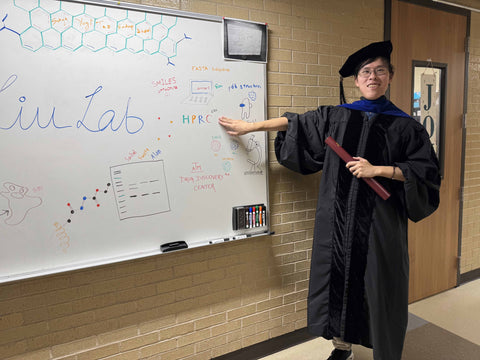
My mission
My mission as a chemistry tutor is to empower students to build deep, conceptual understanding of general and organic chemistry. Drawing on my Ph.D. training in chemistry and five years of teaching and tutoring experience, I guide learners through complex topics—like reaction mechanisms and molecular structure—using clear explanations, real-world examples, and hands-on practice. I strive to foster confidence, curiosity, and problem-solving skills so that every student feels equipped to tackle challenges and succeed in their chemistry journey.
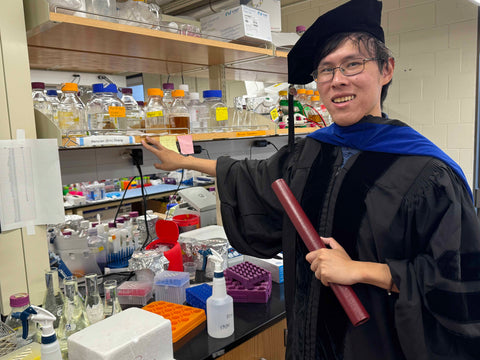
My Story
I discovered my passion for teaching while earning my B.S. in Chemistry at the University of Wisconsin–Madison, where I led peer study groups and realized how rewarding it was to help classmates master tricky reactions. That spark grew into a formal role as a chemistry tutor and eventually led me to pursue a Ph.D. at Texas A&M University. During my graduate work—balancing research on enzymatic mechanisms with teaching lab sections—I saw firsthand how clear explanations and real-world examples transformed student confidence. Now, I tutor general and organic chemistry because I love guiding learners through “aha!” moments and helping them see the science behind everyday life. Fun fact: I unwind by brewing my own small-batch craft beer—proving that chemistry can taste as good as it sounds!
Cognitive Diversity
How I adapt to students with diverse intellectual needs.I’ve worked closely with students who have special needs, including a memorable chemistry student with a hand-motion impairment that made traditional writing and lab work challenging. To support them, I adapted materials with larger diagrams and digital worksheets they could complete via tablet, and I walked them through experiments step-by-step—demonstrating pipetting and measurements while they directed the process verbally. I also incorporated voice-to-text tools for note-taking and provided extended time on quizzes. By combining patience, flexible teaching tools, and clear verbal guidance, I ensured they fully engaged with both general and organic chemistry concepts.
I believe my tutoring sessions are an excellent fit for 2e (twice-exceptional) students because I can simultaneously meet their advanced abilities and their unique learning challenges. Although I haven’t formally worked with students diagnosed as 2e, my experience supporting a high-achieving chemistry student with a hand‑motion impairment demonstrates my flexibility and commitment to individualized instruction.
First, I challenge gifted learners by diving deep into conceptual chemistry topics—such as enzyme kinetics in biochemistry or molecular orbital theory in organic chemistry—while providing enrichment materials that extend beyond standard curricula. My Ph.D.-level background in protein science and computational chemistry enables me to design advanced problem sets, research-inspired mini-projects, and exploratory simulations that keep highly capable students engaged.
At the same time, I scaffold instruction for students with learning differences by:
Adapting Materials: Creating large-print and digital diagrams, tablet-friendly worksheets, and interactive simulations to reduce fine-motor demands.
Leveraging Assistive Technology: Integrating voice-to-text software for writing tasks and using screen-recording tools to review lab demonstrations at any pace.
Chunking and Pacing: Breaking lessons into manageable segments, punctuated with formative checks (quick quizzes or reflection prompts) to reinforce understanding and maintain focus.
Multisensory Teaching: Employing visual aids, hands-on virtual labs, and real-world analogies to address diverse learning styles and strengthen concept retention.
Flexible Assessment: Offering extended time on quizzes and allowing alternative responses (oral explanations or annotated diagrams) to accommodate fine-motor or processing challenges.
My approach is both rigorous and supportive: I maintain high expectations through data-driven assessment and enrichment, while fostering a safe, encouraging environment where 2e students feel comfortable sharing their needs. By tailoring the lesson structure and resources to each student’s profile—honoring their curiosity and managing their challenges—I empower twice-exceptional learners to excel in general and organic chemistry.
I believe my tutoring sessions are an ideal fit for profoundly gifted students because I can design deeply challenging and intellectually stimulating experiences that match their rapid learning pace and advanced curiosity. My own journey—earning a Ph.D. in Chemistry from Texas A&M University and leading research projects in computational biochemistry—gives me firsthand insight into tackling complex scientific problems. As a Research Assistant, I developed high‑throughput enzymatic assays and conducted multi‑microsecond molecular dynamics simulations, and I’m prepared to translate that level of rigor into enrichment activities for gifted learners.
Advanced Enrichment & Independent InquiryI craft bespoke mini‑research projects (e.g., enzyme kinetics modeling or protein‑ligand docking challenges) and guide students through literature reviews and data analysis, encouraging them to think like practicing scientists. My publication record and experience presenting at ACS conferences allow me to mentor students in scientific communication—writing abstracts or creating posters.
Accelerated Pacing & DepthFor profoundly gifted learners, I accelerate the curriculum by introducing graduate‑level concepts—such as quantum‑mechanical treatments of bonding or nonlinear reaction kinetics—paired with targeted problem sets that push their mastery beyond standard coursework.
Mentoring & CollaborationI have tutored advanced high school and college students through UW–Madison’s SALCS program and organized TAMU Science Bowl teams, fostering peer collaboration and leadership. I meet each student’s readiness level, offering seminars on specialized topics (e.g., bioinorganic reaction mechanisms) and connecting them with external competitions or summer research internships.
Supportive, High‑Expectation EnvironmentI hold students to high standards—using data‑driven assessments to track progress—while providing the encouragement and autonomy they need. My experience adapting instruction for diverse learners ensures that even at an accelerated pace, profoundly gifted students feel fully supported as they explore chemistry’s frontiers.

